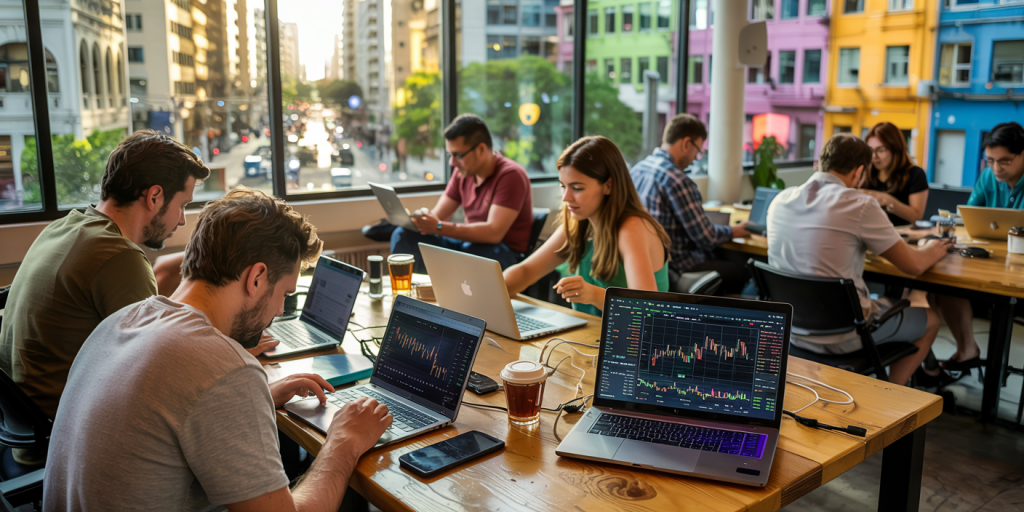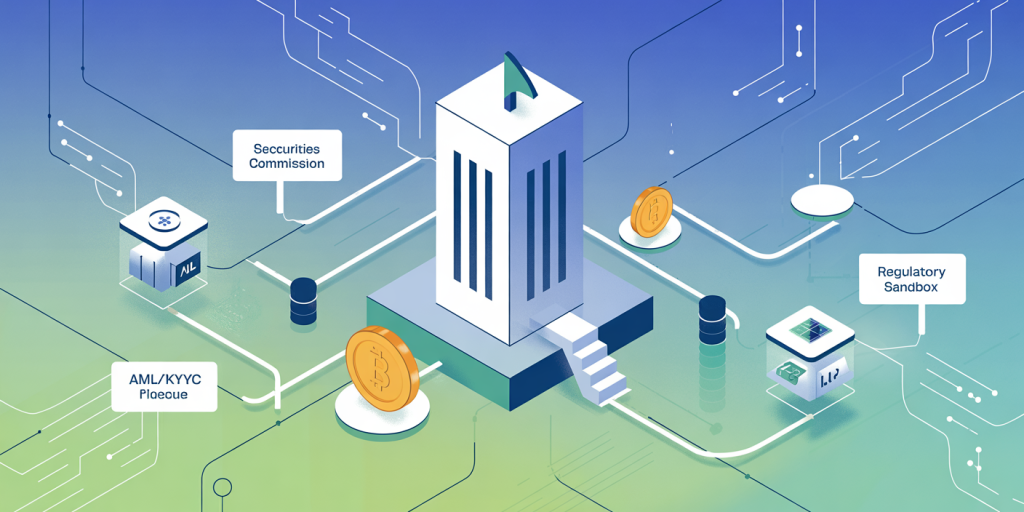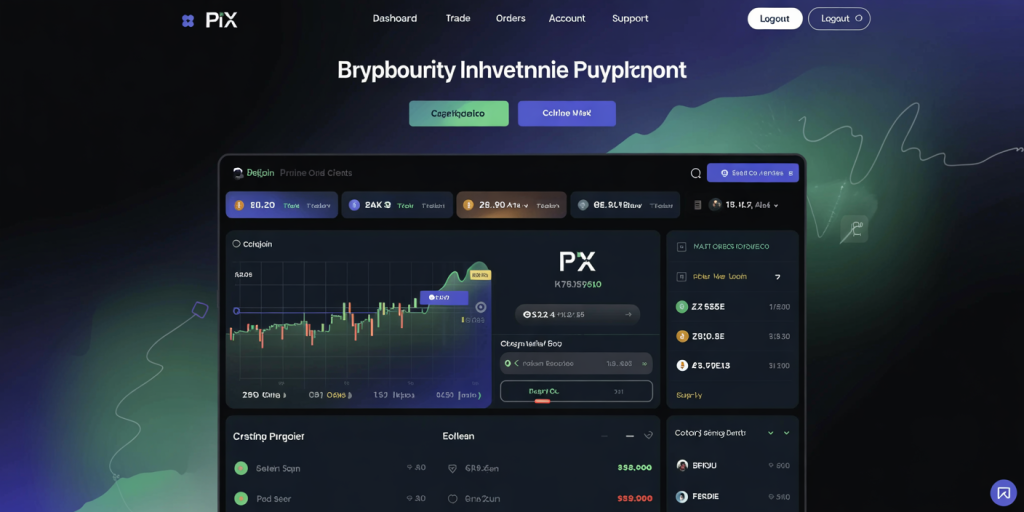How Cryptocurrency Investing Works in Brazil
Brazil, Latin America’s largest economy, has witnessed a significant surge in cryptocurrency adoption and investment over recent years. With an increasing number of individuals and institutions engaging in crypto assets, understanding how cryptocurrency investing works in Brazil is essential for both local investors and international participants seeking exposure to this dynamic market. This article explores the current landscape of crypto investing in Brazil, including regulatory frameworks, popular investment platforms, key investor behaviors, and future opportunities.
Brazil’s Cryptocurrency Landscape: Setting the Scene
Cryptocurrency interest in Brazil has grown rapidly, driven by economic instability, inflation concerns, and the popularity of digital payment platforms. According to the 2023 Global Crypto Adoption Index by Chainalysis, Brazil ranked 11th worldwide in crypto adoption, reflecting significant penetration among the population. Nearly 16% of Brazilians reportedly own or have used cryptocurrencies—a figure that outpaces many developed economies.
The country benefits from a young and tech-savvy population. Younger Brazilians, often disillusioned by traditional banking services and high interest rates, are turning to cryptocurrencies as an alternative store of value or speculative asset. For example, in São Paulo, Brazil’s financial hub, several co-working spaces and local meetups serve as informal crypto education hubs.

Additionally, the macroeconomic environment contributes to crypto’s appeal. Brazil’s inflation rate hovered around 5.8% in early 2024, making cryptocurrencies attractive as a potential hedge. Inflation fears have been further accentuated by fiscal uncertainty, prompting Brazilians to diversify their portfolios beyond government bonds and fixed deposits.
Anúncios
Navigating Brazil’s Regulatory Framework for Cryptocurrencies
Understanding Brazil’s regulatory stance is crucial for safe and compliant crypto investing. The Brazilian Central Bank (Banco Central do Brasil, BCB) and the Securities and Exchange Commission of Brazil (Comissão de Valores Mobiliários, CVM) oversee financial activities, including those related to digital assets.
Anúncios

In 2021, Brazil passed Law No. 14,478, which mandates strict Anti-Money Laundering (AML) and Know Your Customer (KYC) procedures for crypto exchanges. This law requires exchanges to report suspicious transactions exceeding BRL 30,000 (approximately USD 6,000). Furthermore, the CVM considers some cryptocurrencies as securities, especially when used in investment funds or tokenized assets, thus subjecting them to securities law.
Despite these regulations, Brazil has avoided outright bans, promoting a balanced regulatory approach. For example, in 2023, the Central Bank announced the development of a “Regulatory Sandbox” to foster innovation while managing risks. This sandbox enables fintechs and crypto startups to test innovative financial products in a controlled regulatory environment.
However, taxpayers must be aware that Brazil taxes capital gains from cryptocurrency sales at rates varying between 15% and 22.5%, depending on the gain amount. Investors are required to report holdings exceeding BRL 35,000 on the day of sale to the Receita Federal (Brazil’s IRS equivalent). Failure to do so could result in penalties.
Popular Cryptocurrency Investment Platforms and Tools in Brazil
Brazilian investors have a wide range of platforms for acquiring, trading, and managing cryptocurrencies that cater especially to local preferences, payment methods, and compliance requirements. Binance, Mercado Bitcoin, and Foxbit are among the most popular exchanges in Brazil, each possessing distinct advantages.
| Platform | Trading Volume (Monthly, USD) | Local Currency Support | Key Features | Compliance Level |
|---|---|---|---|---|
| Binance | 500M+ | BRL | Wide crypto selection, futures | Fully compliant with KYC/AML |
| Mercado Bitcoin | 150M+ | BRL | Local market leader, Brazilian real wallet, NFT trading | Regulated by CVM and BCB |
| Foxbit | 80M+ | BRL | User-friendly interface, instant BRL deposits | Licensed and AML-compliant |
Mercado Bitcoin, Brazil’s oldest and largest exchange, gained significant traction with over 1 million users as of 2023. It offers integration with PIX (Brazil’s national instant payment system), allowing users to fund accounts or withdraw in real-time—a major advantage given the speed and cost-effectiveness PIX provides.

Moreover, decentralized finance (DeFi) protocols are emerging among Brazilian crypto investors. Uniswap and PancakeSwap have Brazilian users despite relatively higher gas fees on Ethereum. Local projects like “Bee Network” and “Qredo” indicate an increasing interest in non-custodial and decentralized investment methods, although these remain less popular than centralized exchanges.
Investment Strategies and Behavioral Trends Among Brazilian Investors
Brazilian investors exhibit a mix of speculative and long-term holding strategies in cryptocurrencies. A 2023 survey by the Fundação Getulio Vargas (FGV) revealed that approximately 60% of crypto investors in Brazil hold assets as a medium-to-long-term investment, while 40% engage in frequent trading to capitalize on volatility.
Speculation is common with Bitcoin (BTC) and Ethereum (ETH), the two dominant assets in the Brazilian market. However, growing interest in altcoins such as Solana (SOL), Cardano (ADA), and local token projects is driving portfolio diversification. The vibrant NFT market in Brazil also contributes to speculative enthusiasm, with digital art and music NFTs gaining popularity.
A practical example involves the startup “Nubank,” Brazil’s leading digital bank, which started offering Bitcoin purchases directly through its app in 2022. This integration has made crypto investing accessible to mainstream consumers, encouraging a new wave of investors who treat crypto as part of their broader financial portfolio.
Brazilian investors also exhibit some risk aversion due to fluctuating regulatory signals and volatility. Therefore, many retail investors prefer dollar-cost averaging (DCA), purchasing smaller amounts regularly to reduce the impact of price volatility. Moreover, institutional investors like BTG Pactual have begun launching crypto funds to provide safer access to cryptocurrency markets, aligning with global trends.
Security and Risks in Brazil’s Crypto Market
Security remains a top concern for Brazilian crypto investors, especially as cases of cyber theft and scams rise. In 2023, a notable hack of a local exchange, BitcoinToYou, resulted in losses of approximately BRL 10 million (~USD 2 million), sparking calls for improved cybersecurity measures.
Phishing scams and fraudulent Initial Coin Offerings (ICOs) have also been prevalent. The CVM has issued multiple warnings about unregistered investment schemes masquerading as promising high returns. Education and awareness campaigns by government entities and NGO groups have increased but still face challenges reaching smaller towns and rural areas.
Brazilian exchanges typically implement multi-factor authentication (MFA) and cold storage for user funds, but investors are encouraged to use dedicated hardware wallets for long-term holdings. Popular hardware wallets such as Ledger and Trezor are readily available in Brazil through local distributors.
Evaluating risks further, volatility remains a stark reality. Bitcoin’s price fluctuated between USD 20,000 and USD 40,000 in 2023, significantly impacting short-term crypto traders. Local fiat currency depreciation against the USD can also affect the actual investment value when converted back to BRL.
Future Perspectives: Cryptocurrency’s Role in Brazil’s Financial Ecosystem
Looking ahead, cryptocurrencies in Brazil are poised to become ever more integrated into the national economy. The launch of the Central Bank Digital Currency (CBDC) “Digital Real” expected by late 2024 will likely influence existing crypto markets and investor behavior. The Digital Real aims to streamline payments and boost financial inclusion, while complementing rather than competing with decentralized cryptocurrencies.
Interoperability between traditional financial systems and blockchain platforms will create new investment opportunities. For instance, tokenization of real estate, commodities, and even NFTs within regulated frameworks may broaden the scope of crypto investing for Brazilians.
Government initiatives promoting blockchain startups also foster innovation. São Paulo and Florianópolis stand out as crypto development hubs, supported by incubators and venture capital funding. These centers encourage public-private partnerships and could lead to Brazil becoming a Latin American leader in blockchain solutions.
Furthermore, increasing institutional adoption is expected. According to a 2023 report by PwC Brazil, nearly 30% of Brazilian institutional investors are considering crypto assets as part of diversified portfolios, subject to clearer regulations. This institutional influx may reduce volatility and enhance market stability.
In terms of societal impact, cryptocurrencies could improve access to financial services for underbanked populations in the Amazon basin and rural northeastern regions, where traditional banks have limited presence. Mobile phones combined with crypto wallets can enable peer-to-peer transactions and remittances with low fees.
Overall, Brazil’s trajectory in cryptocurrency investing combines innovation, increasing participation, and evolving regulatory clarity. Both retail and institutional investors are likely to benefit from a maturing, transparent, and secure market ecosystem in the coming decade.
